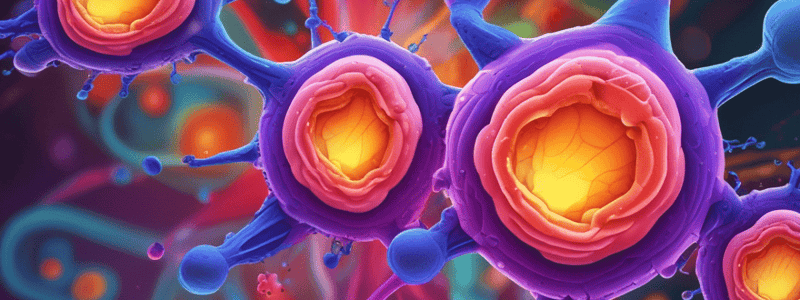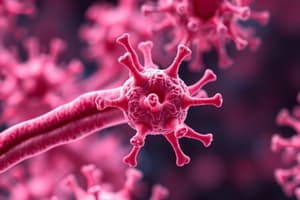Podcast
Questions and Answers
What are the three typical responses that occur when a hormone binds to its receptor?
What are the three typical responses that occur when a hormone binds to its receptor?
- Inhibition of enzyme activity, enhancement of motor skills, decrease in protein synthesis
- Change in membrane permeability, alteration of reaction rates, production of a new molecule (correct)
- Increase in cell size, decrease in ATP production, stopping of gene expression
- Enhanced vision, improved hearing, increased heart rate
How does change in membrane permeability affect cellular function?
How does change in membrane permeability affect cellular function?
- Decreases the cell's ability to respond to stimuli
- Alters the shape of the nucleus
- Increases the number of mitochondria in the cell
- Controls the entry or exit of substances by adjusting transport proteins (correct)
What is the role of altering reaction rates when a hormone binds to its receptor?
What is the role of altering reaction rates when a hormone binds to its receptor?
- Enhances photosynthesis in plant cells
- Regulates the cell's water content
- Affects metabolic reactions by activating or deactivating enzymes (correct)
- Increases the number of lysosomes in the cytoplasm
How does the production of a new molecule relate to changes in gene expression?
How does the production of a new molecule relate to changes in gene expression?
What determines the diverse cellular responses to the same hormone among different target cells?
What determines the diverse cellular responses to the same hormone among different target cells?
How do cellular responses to hormones differ based on hormone solubility?
How do cellular responses to hormones differ based on hormone solubility?
Flashcards are hidden until you start studying




